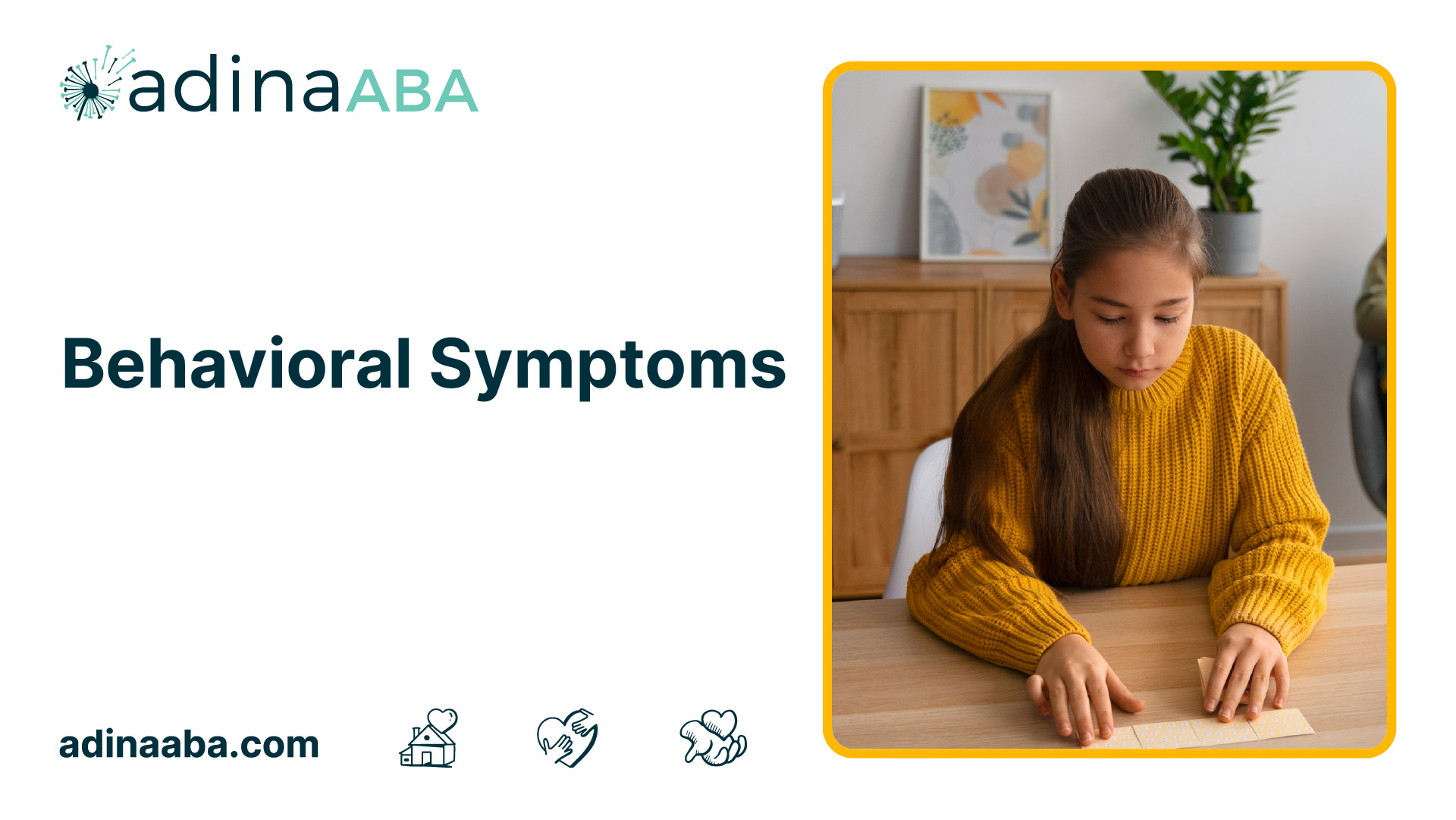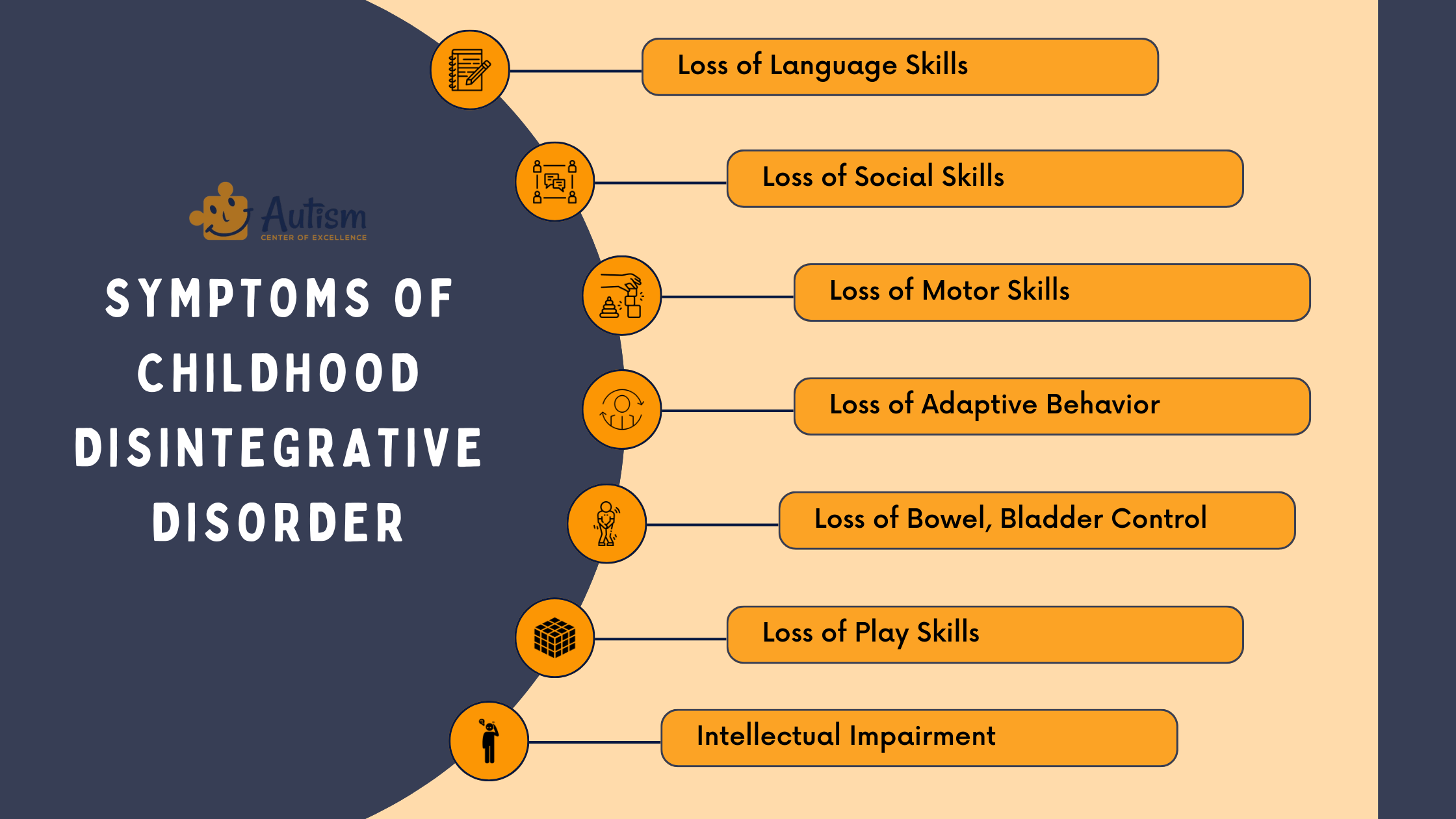7 Key techniques an Autism Spectrum Therapies provider can assist with daily interaction challenges
7 Key techniques an Autism Spectrum Therapies provider can assist with daily interaction challenges
Blog Article
Key Indications and Signs to Acknowledge in Individuals With Behavioral Autism
When you come across someone with behavioral autism, identifying vital indicators and symptoms is important. Furthermore, sensory sensitivities can lead to overwhelming experiences.
Difficulties in Social Interactions
When you communicate with a person on the autism range, you might see they fight with social cues and interaction. These difficulties can make social communications feel frustrating for them. You may see them avoiding eye get in touch with or standing too close or as well away throughout conversations, which can develop misunderstandings. They could not detect body language or face expressions, making it harder for them to assess how others are really feeling.
When they do involve, they could talk about their interests in excellent information without seeing if you're interested. Understanding these challenges can help you approach interactions with empathy and patience, fostering a much more comfy atmosphere for both of you.
Problem With Verbal and Non-Verbal Interaction

Non-verbal communication can be much more challenging. You could see a lack of eye call or limited use gestures, which can make communications feel unpleasant. Faces might not always line up with the conversation, causing confusion regarding their sensations. Acknowledging these indicators is vital, as it helps you much better assistance and engage with people on the autism range. By comprehending their interaction challenges, you can promote much more purposeful connections and supply a more helpful setting.
Repeated Habits and Regimens
Interaction challenges often come with various other indicators of autism, such as recurring habits and a strong preference for routines. You may observe that people with autism usually engage in particular, repeated actions, like hand-flapping, rocking, or repeating expressions. These habits can give convenience and a feeling of control in a frequently overwhelming world.
When they comply with a structured schedule,Routines are equally important; many individuals thrive. You might locate that adjustments to these regimens can cause considerable distress. If they have a daily routine of eating breakfast at a specific time or following a particular path to institution, any disruption can create stress and anxiety.
Recognizing these patterns helps you recognize their habits and provide assistance. By fitting their need for regular and enabling repetitive activities, you can produce a more comfy environment that reduces their difficulties.
Sensory Sensitivities

Usual Sensory Triggers
Sensory level of sensitivities can substantially influence day-to-day life for people with autism, as specific stimuli commonly activate frustrating reactions. Common sensory triggers include loud sounds, intense lights, and solid smells. Understanding these triggers can assist you manage your environment much better.
Behavior Actions Described
Comprehending your behavioral reactions to sensory sensitivities is essential, as they usually disclose exactly how you communicate with the globe. You might discover that certain audios, lights, or structures overwhelm you, resulting in stress and anxiety or pain. When confronted with these stimuli, you could withdraw, cover your ears, and even respond strongly. These responses aren't simply peculiarities; they're your way of dealing with overstimulation. You may additionally discover yourself looking for specific sensory experiences, like deep stress or quiet settings, to assist ground yourself. Acknowledging these patterns helps you recognize your needs far better and can direct just how you interact them to others. By recognizing your sensory sensitivities, you can work in the direction of producing a setting that feels extra manageable and comfy for you.
Coping Strategies Summary
Recognizing your sensory sensitivities is just the initial step; currently it's time to check out coping approaches that can assist you take care of those experiences successfully. Beginning by producing a sensory toolkit customized to your requirements. Developing a structured regimen can likewise give predictability, lowering anxiousness around sensory overload.
Limited Interests and Focus
While numerous people develop a variety of interests, those with autism frequently show limited interests and an extreme emphasis on specific subjects. You may notice that a person with autism can spend hours diving into their favorite topic, whether it's a specific this contact form sort of train, a specific motion picture, or a scientific principle. This extreme emphasis isn't simply a leisure activity; it can become a central component of their identity and social communications.
You might discover that conversations focus on these rate of interests, and they might have a hard time to involve in wider subjects. For them, these focused passions provide convenience and a sense of mastery. While it is necessary to motivate expedition of new topics, valuing their enthusiasms is just as necessary. By understanding and recognizing these limited interests, you can promote a supportive atmosphere where they really feel valued and recognized, enabling for even more purposeful connections and communications.
Emotional Policy Problems
Individuals with autism commonly deal with difficulties in emotional regulation, which can be affected by their extreme concentrate on particular interests. You might see that when a person is deeply participated in a preferred activity, browse around here they can experience solid feelings, whether enjoyment or disappointment. This intensity in some cases makes it hard for them to change equipments or manage their feelings when points do not go as prepared.

Variability in Developmental Turning Points
When it comes to developmental turning points, you'll observe that people with autism frequently reveal a vast array of variability. Some may hit turning points promptly, while others could lag behind or progress at a different speed. You might see a child excel in language skills but struggle with social interactions. This disparity can be confusing, as conventional criteria don't always apply.
It's necessary to acknowledge that each individual's trip is special. Observing these patterns can assist you understand their toughness and needs better.
Regularly Asked Concerns
How Is Autism Detected in Children and Adults?
To detect autism in kids and grownups, specialists assess behavior, interaction skills, and social communications. If an individual fulfills the requirements for autism range disorder., they usually utilize standard tests, meetings, and observations to figure out.
Exist Different Kinds Of Autism Spectrum Disorders?
Yes, there are various sorts of autism spectrum conditions, including Asperger's syndrome and prevalent developmental disorder-not otherwise defined. Each type varies in intensity and characteristics, so comprehending these differences can help you far better support individuals with autism.
What Treatments Work for Individuals With Autism?
When thinking about reliable therapies for individuals with autism, you'll discover alternatives like Applied Behavior Analysis, speech therapy, and work-related therapy. Each approach can help boost interaction, social skills, and everyday working customized to specific requirements.
Can People With Autism Lead Independent Lives?
Yes, individuals with autism can lead independent lives. With the appropriate support, skills training, and resources, you can help them establish self-sufficiency, take care of daily tasks, and grow in numerous environments, cultivating their self-reliance.
Just How Can Households Support Loved Ones With Autism?
You can support your enjoyed ones with autism by developing an organized setting, encouraging their passions, exercising patience, cultivating communication, and advertising social skills. Commemorate their success, despite just how small, and develop an encouraging neighborhood.
Although numerous individuals on the autism spectrum can utilize and understand language, they commonly face significant obstacles with both non-verbal and verbal interaction. Acknowledging these indications is crucial, as it assists you better support and involve with individuals on the autism spectrum. You might observe that people with autism often engage in specific, repetitive activities, like hand-flapping, rocking, or repeating expressions.Sensory level of sensitivities can considerably impact everyday life for individuals with autism, as particular stimulations frequently set off overwhelming responses.When it comes to developmental milestones, you'll see that individuals with autism frequently reveal a wide range of irregularity.
Report this page